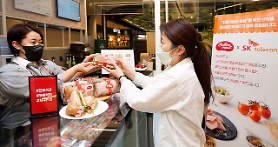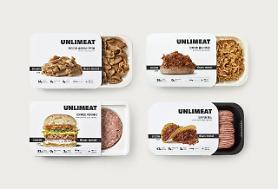
[Courtesy of CJ Cheil Jedang]
Cell culture media is a key raw material for cultured meat which is produced by in vitro cell culture of animal cells. The production of cultured meat used to be expensive, but costs have been lowered through technological advancements.
The partnership with KCell Biosiences (Kcell) would help CJ Cheil Jedang secure a competitive raw material for alternative meat production. Kcell will build a plant in the southern port city of Busan to produce serum-free and chemically defined cell culture media. It would be the second-largest cell culture media plant in the Asia-Pacific region. Production is possible in the second half of 2022.
"Cultured meat is a high-level biotech-based business, and technology innovation companies will eventually lead the global market," an unnamed CJ Cheil Jedang official said in a statement on February 23. "We will actively seek cooperation with food bio companies and the academic world as well as self-research and development to actively preoccupy future food resources."
Kcell is a joint venture between WSG, a bio-process material company in South Korea, and Thousand Oaks Pharmaceuticals, a U.S.-based contract development and manufacturing organization (CDMO) that has production facilities in China.
The domestic alternative meat market is still small, but market researchers forecast rapid growth. According to data from the Korea International Trade Association(KITA), alternative meat would account for more than 30 percent of the global meat market by 2030 and 60 percent by 2040, as concerns over animal welfare and food security spur the global demand for meat alternatives.
Many companies and researchers in South Korea and other countries are trying to establish a new paradigm for the mass production of plant-based or cultured meat by lowering costs through technological advancements. Potential factors of consumer acceptance are healthiness, safety, nutritional characteristics, sustainability, taste and lower prices.
Plant-based meats imitate meat and are most commonly made from soy, peas, beans, mushrooms, mung beans, or wheat gluten. Biomass fermentation uses high-protein content and the rapid growth of microorganisms to efficiently make large amounts of protein-rich food.
In 2021, there have been a series of investments by major South Korean companies to launch or expand their businesses in alternative food markets. SK Inc. invested about 29 billion won in Nature's Fynd that has developed an alternative protein source rich in nutrients using microorganisms and self-fermentation technology found in the Yellowstone National Park.
POSCO International, a trading arm of South Korea's steel group, has agreed to support the development and global marketing of products from two domestic food tech companies, including Gikuin which produces a meat alternative made mainly from brown rice, oats and nuts, and HN Novatech that uses heme molecules extracted from seaweed and fish meat. The target market includes vegetarians, vegans, non-vegetarians seeking to reduce their meat consumption and people following religious dietary laws.
Shinsegae Food affiliated with South Korea's retail group Shinsegae has released an alternative meat brand starting with lunch meats, known as cold cuts, which are precooked or sliced and typically served in sandwiches or on a tray. Shinsegae enhanced the taste and flavor of alternative meat using soybean protein and vegetable oil and fat ingredients and implemented ham's unique elasticity and chewy texture using polysaccharides extracted from algae and fiber.
Copyright ⓒ Aju Press All rights reserved.



